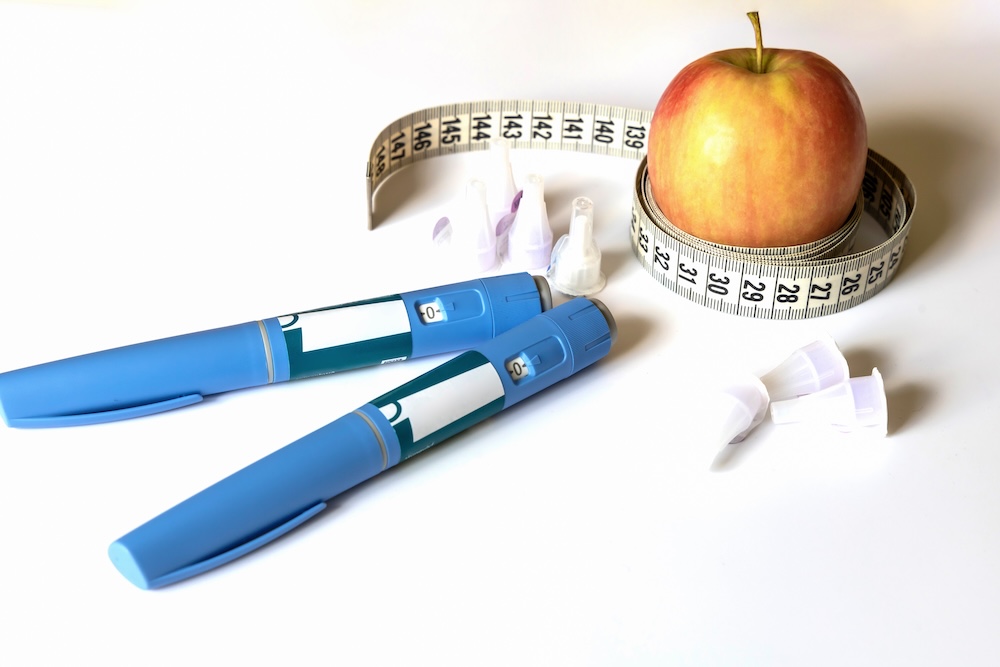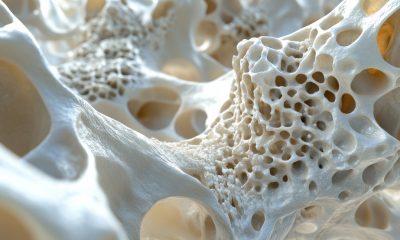Research
Weight loss jabs my only temporarily reduce ‘food noise,’ study finds

Insights
Childhood loneliness linked to increased risk of dementia, study finds

Childhood loneliness increases the risk of dementia in later life, according to new research.
Adults who recalled being lonely and without a close friend in childhood faced a 41 per cent higher risk of developing dementia, even if they were no longer lonely as adults.
People who frequently felt lonely without close friends during youth showed accelerated cognitive decline — a worsening of memory and thinking — and started middle age with lower scores on these skills.
Researchers from universities in China, Australia and the US, including Harvard and Boston universities, analysed data from 13,592 Chinese adults tracked from June 2011 to December 2018.
The critical factor was the subjective feeling of loneliness itself. Those who reported often feeling lonely as children had a 51 per cent higher dementia risk, even if some had close friends.
However, those who only lacked close friends but did not feel lonely showed no significant difference in risk.
Nearly half of roughly 1,400 adults in the study reported being lonely and without close friends during childhood.
The 4.2 per cent who experienced both faced the highest risk of cognitive decline.
The link to dementia remained strong even for people who were no longer lonely in adulthood, suggesting early-life isolation can have lasting effects on brain health.
During childhood, the brain develops rapidly and is vulnerable to harm. Loneliness acts as a chronic stressor, flooding the developing brain with harmful hormones that can damage memory centres, and it reduces stimulation from social play and peer interaction that helps build robust neural networks.
A separate 2024 study of more than 10,000 older adults found that specific childhood hardships — including poverty, disruptive home environments or parental addiction — were directly linked to poorer cognitive function later in life.
Youth loneliness appears to be rising, partly linked to widespread social media use.
Among girls, 64 per cent aged five to seven, 67 per cent aged eight to 10, and 73 per cent aged 11 to 13 reported feelings of loneliness last year. More than a quarter of boys aged 11 to 17 in the US report feeling lonely.
Children face growing social isolation, with one in four Americans now eating every meal alone — a rate that has surged by over 50 per cent since 2003. Sharing meals with friends and family helps build bonds and positive memories in youth.
Fewer children are playing outside or joining team sports.
A recent study reported that one in three children do not play outside on school days, and one in five do not do so even at weekends.
The 2024 research found a direct, dose-dependent relationship between childhood adversity and cognitive problems in adults — the greater the early trauma, the greater the later risk.
For each significant increase in early trauma, individuals faced an eight per cent higher risk of daily memory issues and scored lower on objective tests of mental speed and focus.
News
One in 20 children has high blood pressure, study finds

Rates of high blood pressure in children have almost doubled since 2000, with more than one in 20 now affected, new global research shows.
In 2020, 6.2 per cent of under-19s had high blood pressure, compared with 3.2 per cent in 2000.
High blood pressure, also known as hypertension, now affects 114 million children worldwide, according to an international team including academics from the University of Edinburgh and Zhejiang University in China.
The authors examined data on 443,000 children from 21 countries and found obesity was a substantial driver of the problem.
Nearly 19 per cent of children and adolescents with obesity have high blood pressure, compared with 3 per cent among those with a healthy weight.
In England, one in ten (10.5 per cent) children in the first year of primary school is obese. By the final year, 22.2 per cent are obese, according to the National Child Measurement Programme.
High blood pressure occurs when the force of blood pushing against artery walls is consistently too high, which can damage blood vessels and organs over time.
Co-author Dr Peige Song of Zhejiang University attributed higher rates to unhealthy diets, decreased physical activity and rising childhood obesity.
She said: “The analysis showed that children and adolescents with obesity are nearly eight times more likely to develop hypertension.”
“Parents play a pivotal role in preventing and managing high blood pressure in children.
“Promoting healthy habits, such as a balanced diet rich in fruits, vegetables and whole grains while minimising salt and sugar intake, can substantially reduce the risk of hypertension.”
News
Tool predicts Alzheimer’s risk years before symptoms appear

A new tool can estimate Alzheimer’s risk years before memory and thinking problems emerge, offering personalised risk scores long before symptoms.
The research builds on decades of data from one of the world’s most comprehensive population-based studies of brain health.
Mayo Clinic researchers developed the prediction model, which found that women have a higher lifetime risk than men of developing dementia and mild cognitive impairment (MCI) — a transitional stage between healthy ageing and dementia that often affects quality of life but still allows people to live independently.
Men and women with the common genetic variant APOE ε4 also have a higher lifetime risk.
Alzheimer’s disease is marked by two key proteins in the brain: amyloid, which forms plaques between nerve cells, and tau, which forms tangles inside nerve cells. Drugs recently approved by the US Food and Drug Administration remove amyloid from the brain and can slow the rate of disease progression for people with MCI or mild dementia.
“What’s exciting now is that we’re looking even earlier — before symptoms begin — to see if we can predict who might be at greatest risk of developing cognitive problems in the future,” said Clifford Jack Jr, radiologist and lead author of the study.
The new prediction model combined several factors, including age, sex, genetic risk associated with APOE genotype, and brain amyloid levels detected on PET scans. Using the data, researchers can calculate an individual’s likelihood of developing MCI or dementia within 10 years or over the predicted lifetime.
Of all the predictors evaluated, brain amyloid levels detected on PET scans had the largest effect on lifetime risk for both MCI and dementia.
“This kind of risk estimate could eventually help people and their doctors decide when to begin therapy or make lifestyle changes that may delay the onset of symptoms. It’s similar to how cholesterol levels help predict heart attack risk,” said Ronald Petersen, neurologist and director of the Mayo Clinic Study of Aging, who is a co-author of the study.
The research draws from the Mayo Clinic Study of Aging, a long-running effort in Olmsted County, Minnesota, that tracks thousands of residents over time. The analysis for this study included data from 5,858 participants.
Unlike most studies, Mayo researchers are able to continue following participants even after they stop actively taking part, using medical record data — ensuring nearly complete information about who develops cognitive decline or dementia.
“This gives us a uniquely accurate picture of how Alzheimer’s unfolds in the community,” said Terry Therneau, who led the statistical analysis and is the senior author of the study. “We found that the incident rate of dementia was two times greater among the people who dropped out of the study than those who continued to participate.”
The study elevates the significance of MCI, which is the stage targeted by current Alzheimer’s drugs that slow but do not stop progression.
While the new tool is currently a research instrument, it represents a step toward more personalised care. Future versions may incorporate blood-based biomarkers, which could make testing more accessible.
The work was supported by the National Institute on Aging, the GHR Foundation, Gates Ventures and the Alexander Family Foundation.
The research is part of a wider effort at Mayo Clinic, called the Precure initiative, focused on developing tools that help clinicians predict and intercept biological processes before they evolve into disease or progress into complex, hard-to-treat conditions.
“Ultimately, our goal is to give people more time — time to plan, to act and to live well before memory problems take hold,” said Dr Petersen.

 Wellness1 month ago
Wellness1 month agoScientists discover new anti-ageing drug class that could extend lifespan

 News3 weeks ago
News3 weeks agoUCR scientist wins AFAR grant for immune ageing

 Insights1 month ago
Insights1 month agoMost Americans would be considered obese under new guidelines

 Independence2 weeks ago
Independence2 weeks agoResearcher wins grant for tissue ageing study

 Research2 months ago
Research2 months agoBone breakthrough could reverse osteoporosis

 News2 months ago
News2 months agoResearch uncovers ageing secrets of world’s oldest woman

 Wellness4 weeks ago
Wellness4 weeks agoJust 30 mins of light activity can boost energy and mood, study finds

 News7 days ago
News7 days agoSupplement could restore memories lost by Alzheimer’s, study finds


































